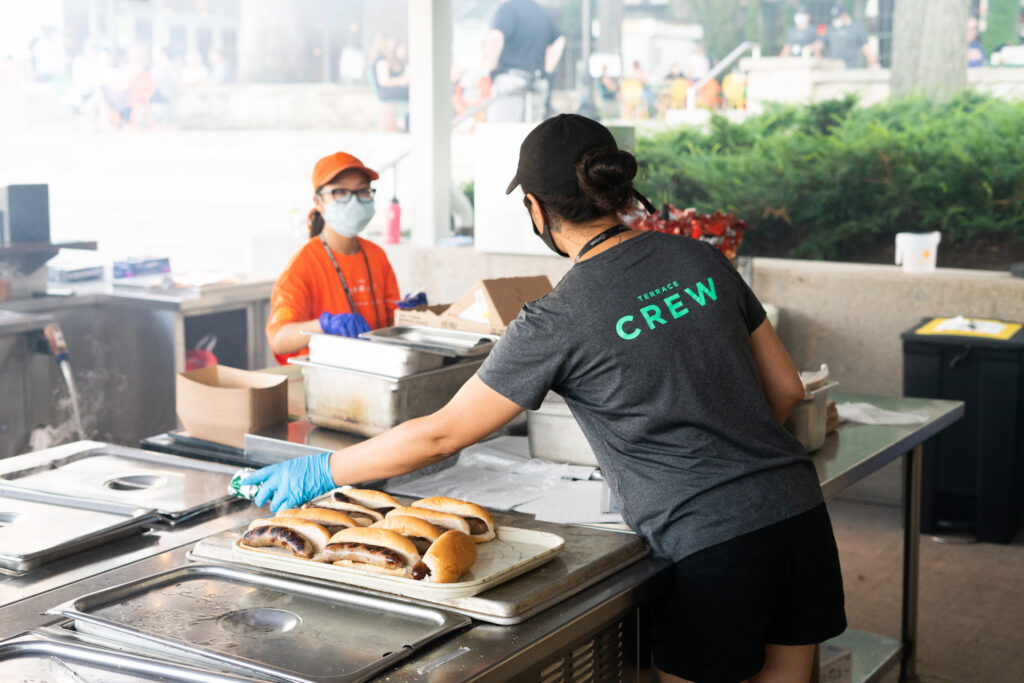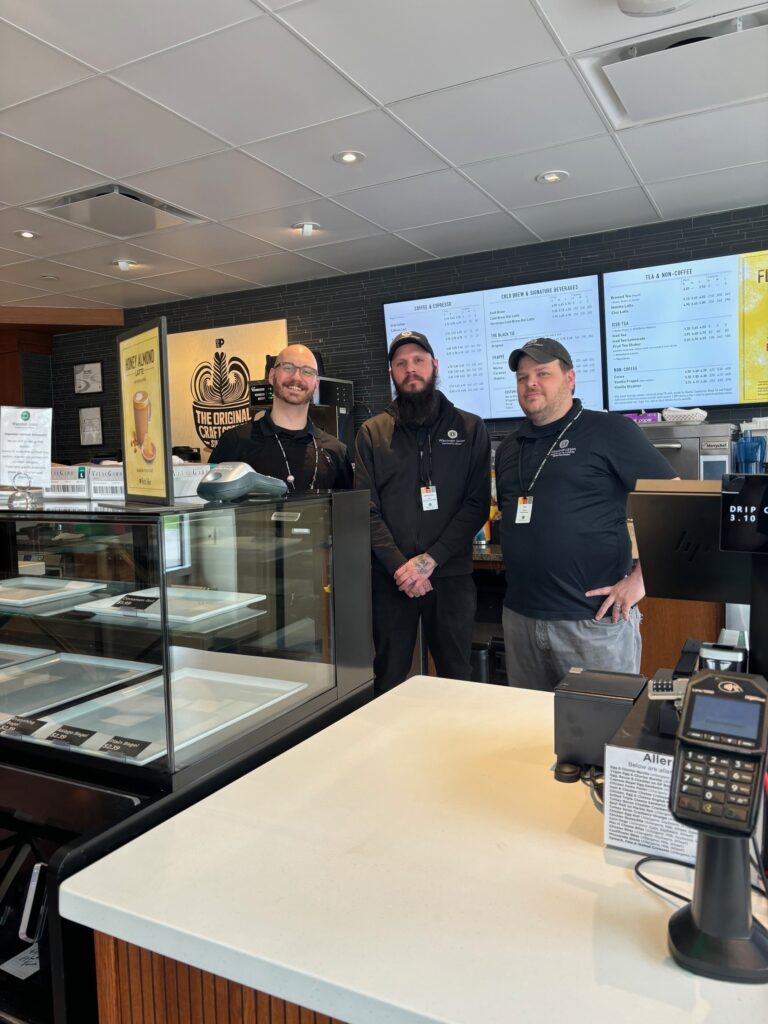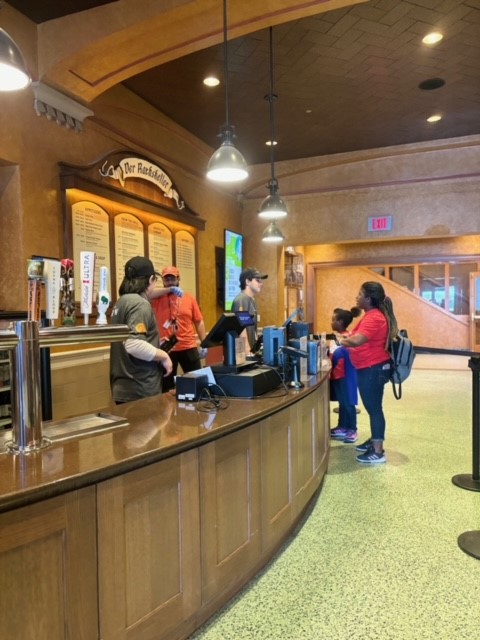Bear? No. More Like a Friendly Golden Retriever.
The TV show “The Bear” has sparked conversations and news stories around the world about the toxic cultures found in far too many restaurant kitchens. The show centers on the story of an award-winning chef, who returns home to the Midwest to manage his passed brother’s sandwich shop.

“The Bear” shows scenes of chefs berating colleagues, asking rhetorical questions intended to belittle them and engaging in name-calling, all with the expectation that the colleagues respond with obedience and a, “Yes, Chef.” Dishearteningly, journalists have confirmed that this is a relatable experience for many working in restaurants.
But at the Wisconsin Union, you will not find that. We’re swinging open the doors to our kitchens in this story and giving you a look at the kinder, supportive ways we run our dining operations, from the people who live it. We’re far more like a friendly Golden Retriever greeting you like a best friend.

As someone who frequently visits our kitchens at Wisconsin Union dining options across campus, this show’s depiction of the restaurant world starkly contrasts with the laughter, smiles, patient teaching, and thoughtful teamwork I’ve seen, even when no one knows anyone is watching. So, I set out to connect with Wisconsin Union dining team leaders to find out how we’ve avoided the toxicity that can sometimes plague culinary workplaces.
It’s no secret that the hospitality industry is often not a 9 a.m.-5 p.m. job and that if someone is unavailable due to illness, vacation or a personal situation, the work still has to get done. So why are we at the Wisconsin Union almost always fully staffed, and why do we have team members who have been part of our team for decades?
Wisconsin Union Associate Executive Chef Michelle Dubis joined the Wisconsin Union team in 2023 and is based at our building Memorial Union. She attributes our positive culinary work culture to the Union’s fostering and respect of work-life balance, regular meetings during which staff can freely express concerns and needs, meetings with supervisors to discuss goals and team culture, daily communication on operations updates, and team-building activities.
“We have work/life balance through vacation time and respecting boundaries when we are off,” Chef Michelle said.

Chefs often play a key role in building workplace culture. Chef Michelle says some of the keys to chefs contributing to a healthy culinary workplace are humility, listening, being of service to fellow staff, following through with addressing concerns and with promises, greeting colleagues, and truly taking time to get to know team members.
Associate Executive Chef Kris Ekles, who is based at our building Union South, shared that the commitment to leading by example is how he often sees leaders nurture our good work culture.
“One of the main things that our team leaders at Union South practice is ‘lead by example,’” Chef Kris said. “Show and teach the staff the culture.”
Rob Gretzlock, associate director of dining and hospitality at Memorial Union, is one of the individuals you will often see leading by example at Memorial Union dining operations, helping wherever help is needed, smiling and collaborating through even the busiest times, and always finding time to express gratitude and care for team members.

In pondering what he sees as the building blocks of our positive culture in our kitchens and our front-of-house areas, he spoke of open communication, teamwork, and the shared understanding on our team that when one person succeeds, we all do.
He also wanted to take time to highlight the work of our hundreds of student team members and our full-time staff’s dedication to mentoring those team members.
“Our students are a big part of what makes our operations so successful. Without them, we would be nowhere,” Rob said. “The full-time team’s dedication to teaching, coaching and providing opportunities for student team members to grow, make mistakes, and experience successes is one of the main components to our successful work culture.”
He also believes in the power of praising the growth and success of team members.
“It’s vital to success to praise often,” Rob said.
He offered this advice to other culinary leaders seeking to foster a positive work environment: “Take time every day, and show someone that you appreciate them and the work and contributions that they provide to your winning team. I guarantee that they will contribute to the culture and environment that you desire and crave.”
Come enjoy the culinary experiences our team creates throughout downtown Madison, including Memorial Union, the Memorial Union Terrace, Union South, the Fluno Center and more: https://union.wisc.edu/dine/find-food-and-drink/.
Your purchases always in part help support student leadership opportunities at the Wisconsin Union. The Wisconsin Union is a non-profit organization that does not receive taxpayer dollars as part of its budget. You are what makes our free events, dining options and student leadership roles possible.
